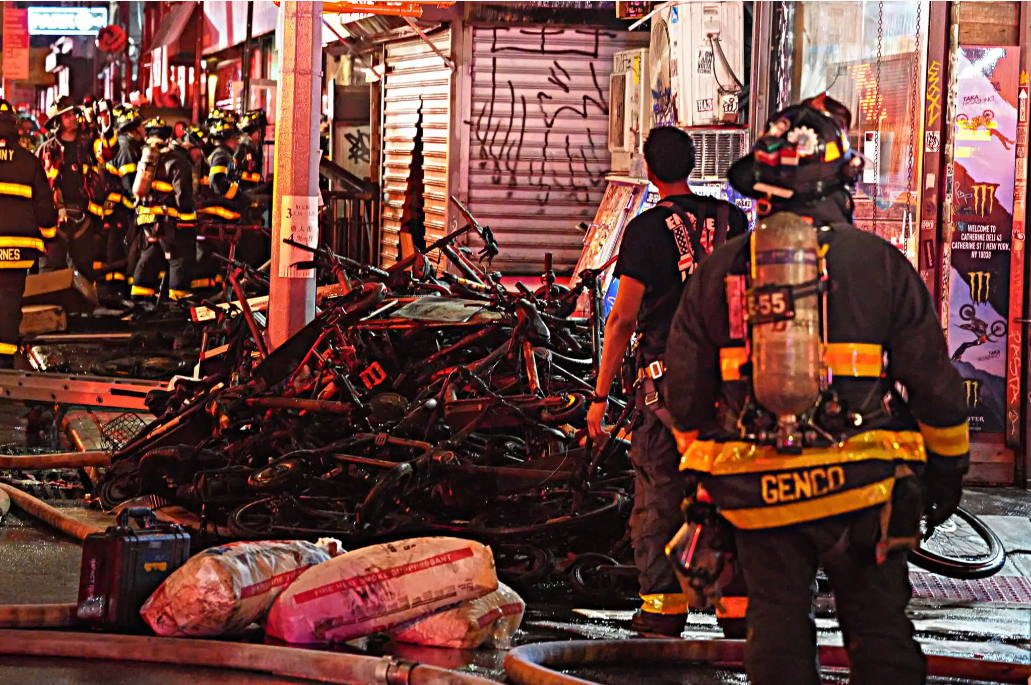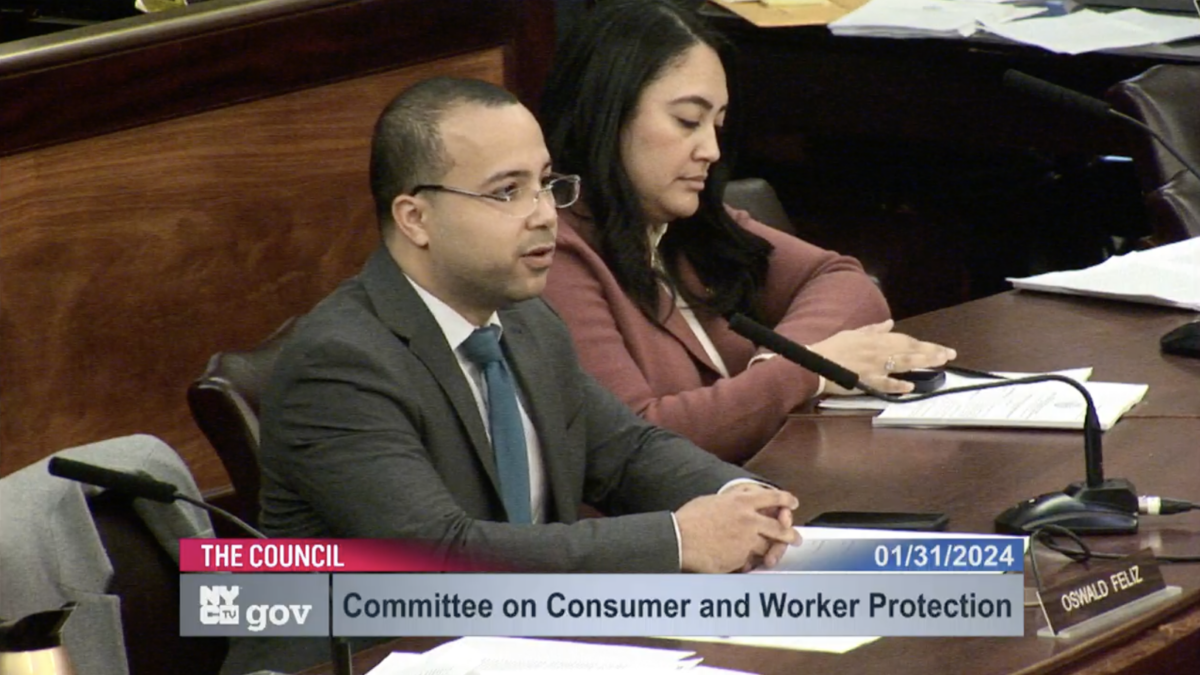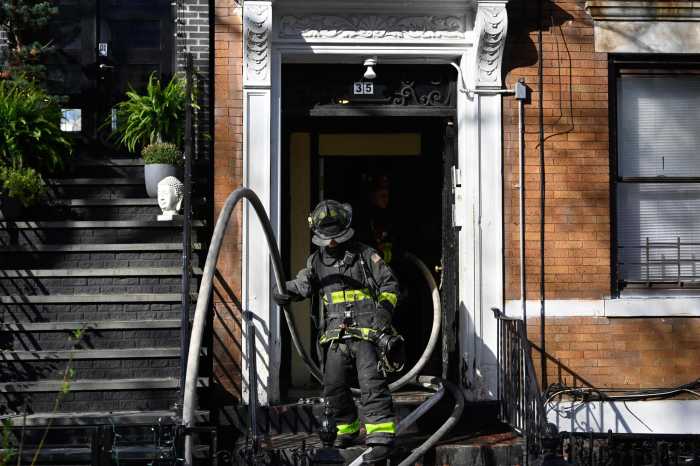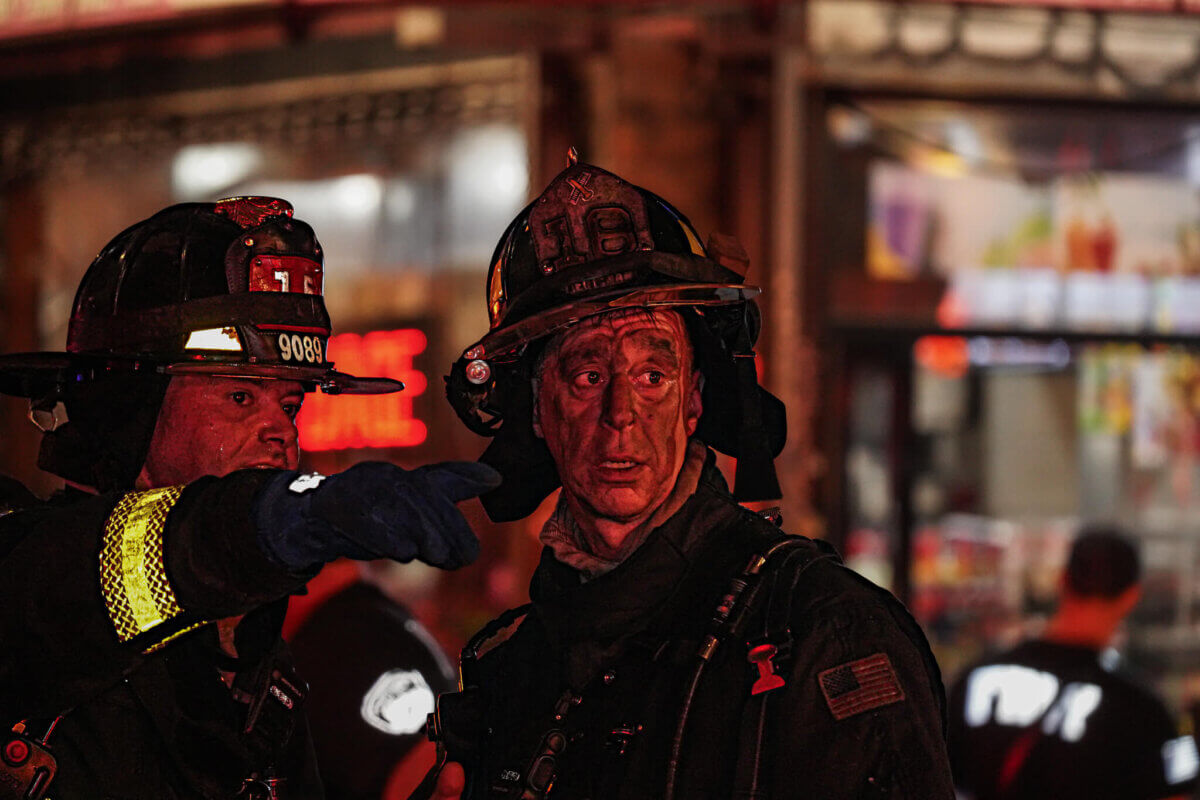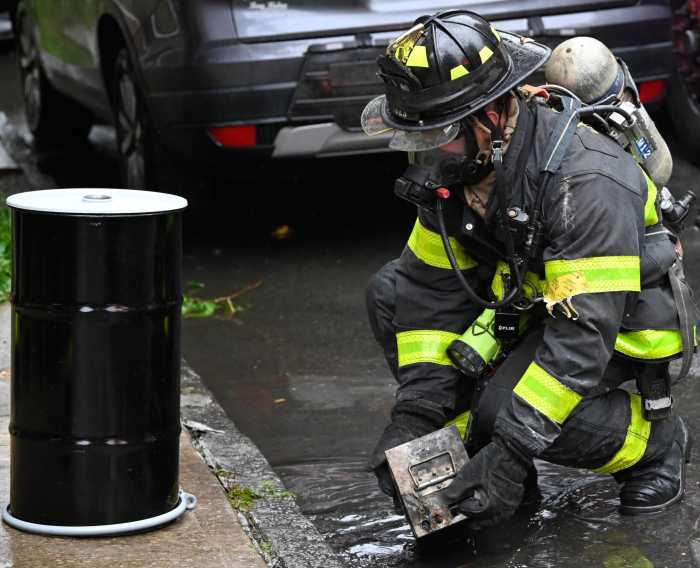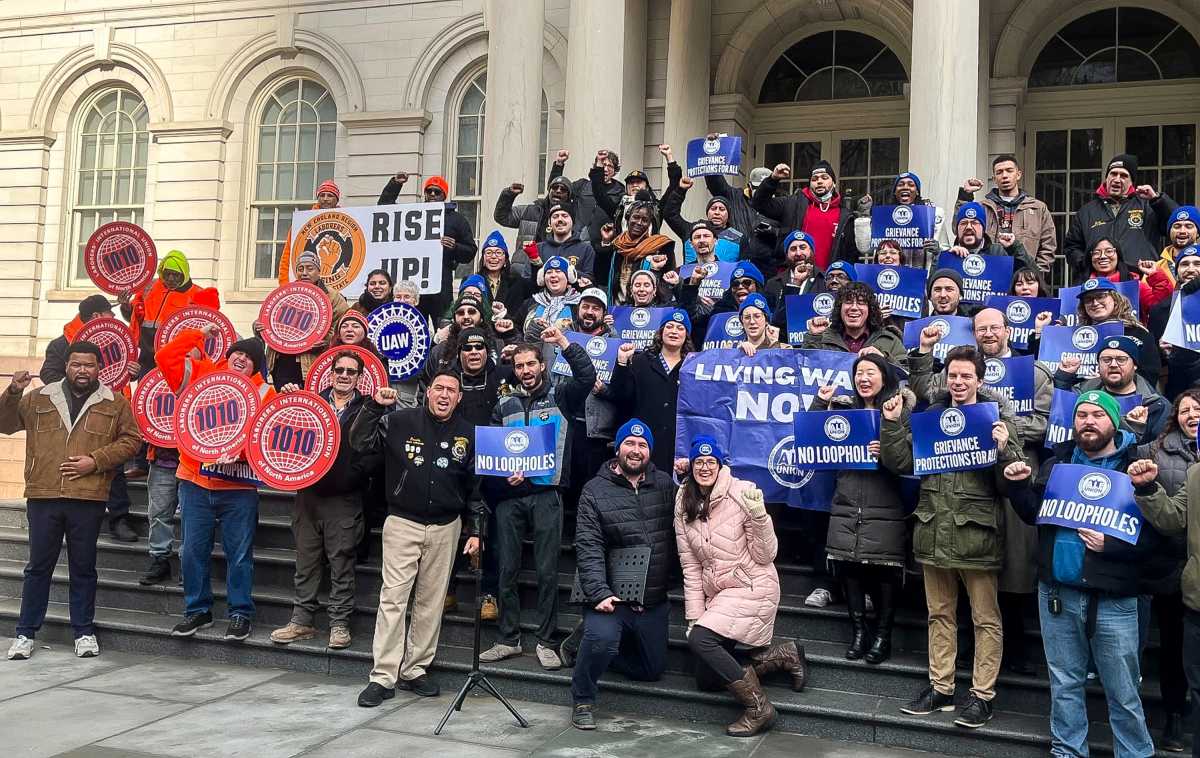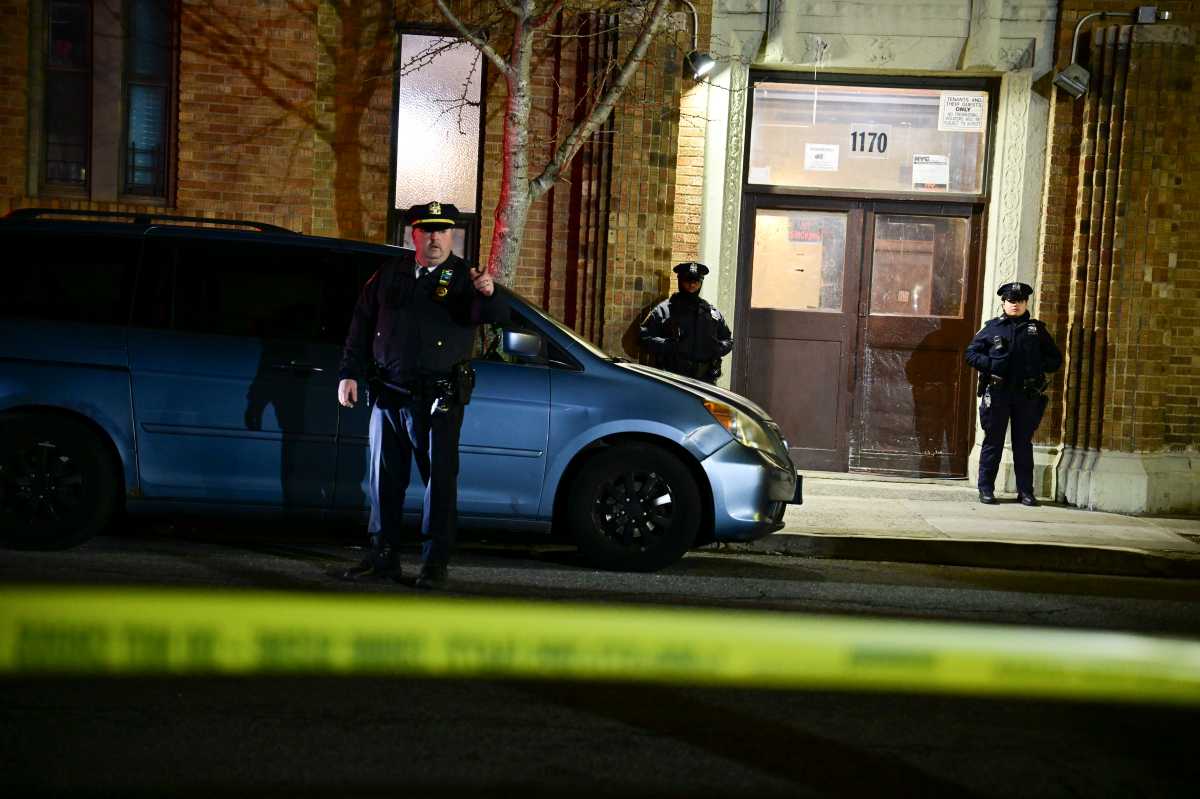Gov. Kathy Hochul signed a suite of bills on Thursday aimed at making e-bikes’ lithium-ion batteries safer amid an ongoing spate of fires connected with the popular micromobility devices.
The governor signed eight pieces of legislation, which, in addition to batteries, aim to tackle unregistered mopeds and induce safe riding and charging practices.
“No one should fear that the e-bike charging down the hall could go off like a bomb any moment. And no firefighter should ever risk their lives because some cheap manufacturer cutting the corners had to make an extra buck,” Hochul said before signing the bills at her Midtown office on Thursday. “These new laws will hold reckless battery makers accountable, build awareness on how to handle e-bikes — and also protect our first responders.”
The marquee bill of the package prohibits the sale of battery-powered bikes or scooters unless the battery is certified by a nationally accredited laboratory, similar to legislation in New York City that passed last year.
Lithium-ion batteries are highly volatile, especially if they are reconstituted from parts of other batteries and sold second-hand, and are liable to explode especially if charged improperly. Last year, 18 people were killed and 150 were injured in New York City from 268 separate fires originating from battery explosions; just three years earlier, in 2020, no deaths were recorded from battery fires and 23 were injured in 44 fires.
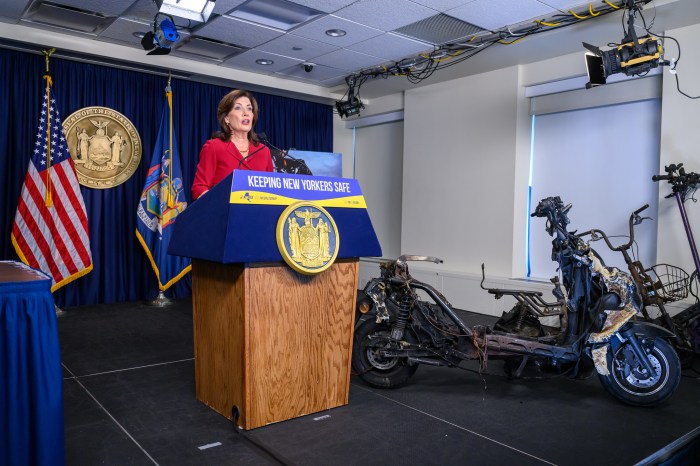
The batteries have been involved in some of the most notorious fires across the city over the last few years, including one that killed four people at a Chinatown bike shop, another that left 40 people injured at a Midtown high-rise, and still another that killed budding investigative journalist Fazil Khan in Harlem.
“These batteries don’t catch on fire like kindlings. They explode like a grenade. They spew toxic gas and chemicals everywhere,” said Hochul. “For our first responders, it’s like arriving at the scene of an arson where someone poured a gallon of gasoline on a home right before lighting a match.”
The governor acknowledged that the batteries, and charging them, are a critical component powering the delivery economy, which has grown significantly in the past decade and particularly since the pandemic. The city has also launched a program to allow delivery workers, sometimes known as deliveristas, to trade in their cheap, second-hand batteries and swap them for a new, certified one.
Hochul also signed a bill requiring e-bikes and scooters in New York be affixed with a bright red tag warning users to unplug the bikes when they’re done charging, aimed at preventing overloading the volatile batteries with electricity, while another requires retailers selling e-bikes or scooters to furnish purchasers with an operating manual. Another bill requires police across the state to file accident reports in any crash involving an e-bike or scooter that results in death or injury.
Still another bill would require state retailers to register any mopeds sold in New York to be registered at the point of sale. Unlike e-bikes, mopeds in New York must be registered but frequently are not: the NYPD confiscated some 18,000 unregistered two-wheelers and ATVs last year alone.
Read More: https://www.amny.com/nyc-transit/



